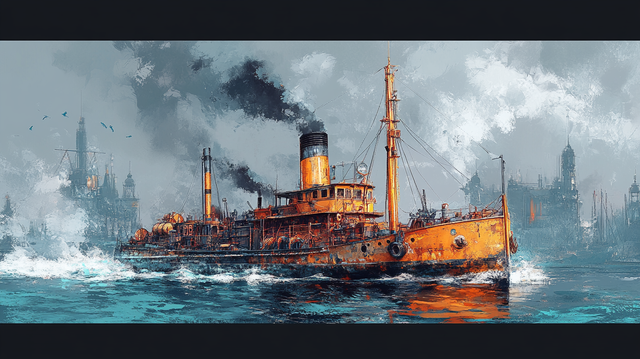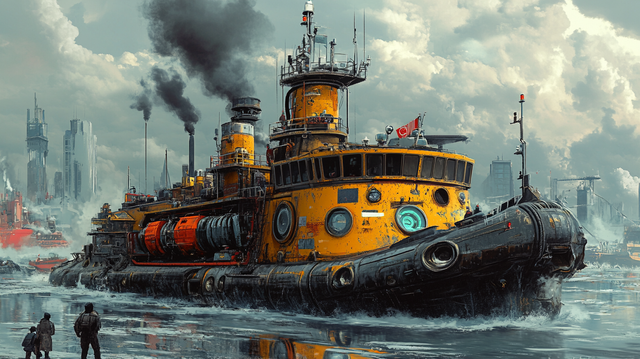
Tugboats, small but powerful vessels, have been essential in maritime operations since the 19th century. Designed to assist larger ships in navigating tight harbors, docking, and traversing treacherous waters, their history is one of innovation and adaptability in the service of global shipping and transportation.
Early Beginnings
The origins of tugboats date back to the late 18th and early 19th centuries, coinciding with the advent of steam-powered engines. The first steam-powered tugboat, Charlotte Dundas, was launched in 1802 in Scotland, demonstrating the potential of steam technology to tow heavy loads. Although primarily designed for canal work, this innovation laid the groundwork for the development of more versatile tugboats.
Growth in the Steam Age
During the mid-19th century, as global trade expanded and ports became busier, the demand for tugboats grew. Steam-powered tugs became indispensable for assisting larger sailing ships, which often lacked maneuverability in crowded or narrow waterways. Their compact design, combined with robust engines, allowed them to operate in areas where larger vessels could not.
Transition to Diesel Power
The early 20th century saw the gradual shift from steam to diesel engines, making tugboats more efficient and reliable. This transition allowed for longer operational ranges, reduced maintenance, and increased towing power. Tugboats became critical during both World Wars, aiding military logistics by towing warships, assisting in salvage operations, and clearing harbors.
Modern Innovations
Today’s tugboats are technological marvels, equipped with advanced navigation systems and powerful engines capable of generating immense thrust. Many modern tugs are fitted with azimuth thrusters, which provide exceptional maneuverability. These enhancements enable them to handle increasingly massive cargo ships, oil tankers, and cruise liners. Specialized tugboats, such as icebreakers and fireboats, have also emerged, tailored to specific tasks.
Tugboats play a vital role in maritime safety, ensuring the secure movement of vessels in and out of ports and through hazardous areas. Their ability to tow disabled or stranded ships makes them essential in emergency situations, from environmental disasters to ship breakdowns.
Enduring Symbol of Strength
While often overshadowed by the grandeur of larger vessels, tugboats remain indispensable in the maritime world. Their history is a testament to human ingenuity and the enduring need for collaboration in navigating the complexities of the seas.
Tugboats, with their resilience and adaptability, continue to symbolize the unsung heroes of the waters—small but mighty guardians of global commerce and safety.



